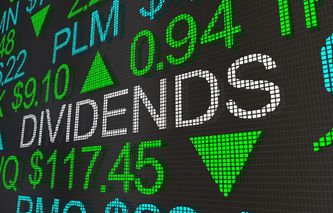The term equity index refers to a sample of equities used to measure the performance of a sector of equities. An equity index is a tool investors use to understand how individual equity performs relative to its peers.
Also referred to as a stock market index, an equity index is a sample of equities, or common stocks, which are used as a benchmark when comparing the performance of a smaller set of equities or an individual stock. Mutual funds and exchange-traded funds (ETFs) often attempt to replicate an index's performance. This allows investors to achieve returns similar to the market index.
Broad market measures include the S&P 500, the Nikkei 225, the FTSE 100, and the NASDAQ Composite Index. While the Dow Jones Industrial Average was at one time considered an indicator of the overall market's performance, other indices, such as the S&P 500, are deemed more indicative.
In addition to broad measures of market performance, an equity index can measure the performance of a smaller sector of stocks. For example, the Dow Jones Utilities Index and the Dow Jones Transportation Index provide a better measure of companies competing in these sectors. Finally, the Wilshire 5000 Index is considered a total market index since it includes nearly every publicly-traded company in the United States, including those traded on the NASDAQ and New York Stock Exchange.
Types of Stock Market Indexes
Several types of stock market indexes are categorized based on different methodologies and objectives. Some indexes are classified based on how they are constructed or calculated, while others are designed to serve specific purposes.
Here are some common types of indexes and a popular example of each type of index.
Capitalization-weighted indexes where the constituent stocks are weighted according to their market capitalization. In such indexes, the stocks with the highest market caps have the greatest impact on the index's performance. (S&P 500, NASDAQ Composite)
Price-weighted indexes in which the constituent stocks are weighted according to their price per share, and the stocks with the highest prices have the most significant influence on the index's movements. (Dow Jones Industrial Average (DJIA))
Equal-weighted/unweighted indexes where all constituent stocks have equal weight and have the same impact on the index’s performance. (S&P 500 Equal Weight Index)
Broad-market indexes whose goal is to represent the performance of the overall stock market or a significant portion of it. Such indexes include a broad range of stocks from different sectors and market segments. (S&P 500, Wilshire 5000 Total Market Index)
Multi-market indexes cover stocks from multiple markets or exchanges and are designed to provide a broader view of the global or regional markets. (MSCI World Index)
Sector indexes that focus on specific industry sectors, such as technology, healthcare, financials, energy, etc., provide insights into the performance of that industry. (Technology Select Sector SPDR Fund, Financial Select Sector SPDR Fund)
Style indexes where stocks are categorized on their investment styles, such as growth or value, provide insights into how well a portfolio constructed in each style ought to perform. (Russell 1000 Growth Index, Russell 1000 Value Index)
Note that because of the way they are classified, one stock market index can simultaneously belong to multiple types; e.g., the S&P 500 Index is both a capitalization-weighted and a multi-market index.
How Do Investors Use Equity Indexes?
Equity indexes can serve multiple purposes, and different investors can use them to gain various insights that can help them make more informed investment decisions and adjust their portfolios accordingly.
Performance measurement – Investors can compare their portfolio returns against relevant indexes and assess how well they have performed. This way, they can determine if the portfolio has outperformed or underperformed the market.
Investment strategy – Investors can replicate the index composition by investing in the same stocks in the same proportions. This commonly known strategy is passive or index investing, which aims to match the index's performance rather than trying to outperform it.
Asset allocation – By analyzing various indexes representing different market segments (e.g., large-cap, small-cap, sectors), investors can decide how much to allocate to each area based on their investment goals, risk tolerance, and market outlook.
Industry analysis – Investors can use indexes to analyze industry trends, identify potential opportunities or risks and adjust their portfolio allocations accordingly.
Market analysis – Analyzing the performance of broad-market indexes can gauge the health of the overall stock market and identify potential market trends. Such insights can help investors to make informed decisions about market entry or exit points, timing of investments, and overall market outlook.
It is essential to point out that while equity indexes provide valuable information, relying solely on them for investment decisions may not be sufficient. Most investors align their Index findings with personal factors like risk tolerance, financial goals, investment preferences, and additional research to get the best results.
Index Funds
Equity indexes are also the basis behind index funds. As we previously mentioned, some investors use index investing as a passive investment strategy, and investing in an index fund is the easiest way to track the performance of a particular market index.
By replicating the index composition, investors get the necessary diversification to reduce risks while keeping the operations cost lower than with an actively managed fund. However, since their goal is to match the performance of their target index, index funds can never outperform the market.
Index-Linked Annuities
Index-linked annuities are another investment type based on equity indexes. They work similarly to index funds in the sense that they also follow the performance of a specific index and base their returns on its performance.
However, index-linked annuities offer an extra layer of protection in case of market downturns. They typically come with features such as a minimum guaranteed return or a buffer zone that shields the investor from a certain percentage of losses. The caveat is the returns paid by index-linked annuities are also subject to certain limitations and may not fully capture the entire upside potential of the index.

.jpg)




.jpg)